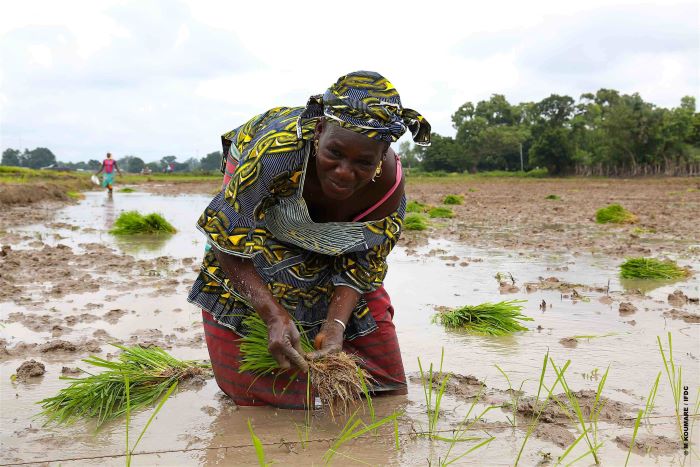The African Development Bank (AfDB)-funded Technologies for African Agricultural Transformation program (TAAT) is set to reach 40m farmers across Africa in the next five years. Moreover, the institution has further added 120m in metric tons of additional foodstuffs in the African food basket, valued between US $1.5Bn- $2.8Bn.
Launched back in 2018, the TAAT program has started implementation in 28 countries, with 4 more in the process of joining the program. The overall goal of the program remains to transform African agriculture into a competitive sector by deploying high-impact, proven agricultural technologies to raise agricultural productivity in Africa; mitigate risks and promote diversification and processing across 18 agricultural value chains within eight priority intervention areas.
The program increases agricultural productivity through the deployment of proven and high-performance agricultural technologies at scale along selected nine commodity value chains which include Maize, Rice, Wheat, High Iron Bean, Cassava, Orange Fleshed Sweet Potato, Sorghum/Millet, Livestock and Aquaculture.
These work with six enabler compacts addressing transversal issues such as soil fertility management, water management, capacity development, policy support, attracting African youth in agribusiness and fall armyworm response.
Background
Despite huge agricultural potential, African countries are yet to reap multiple benefits from it, experiencing one of the highest prevalence of undernourishment in the world. Out of about 795m people suffering from chronic undernourishment globally, 220m live in Africa.
The Food and Agricultural Organization (FAO) in 2015 indicated that 23.2%, the current numbers at the time, is by far the highest prevalence of undernourishment worldwide. Even in abundant regions, food shortages can happen, mostly due to poor conservation techniques or post-harvest losses.
As a result, African countries import increasingly more agricultural products than they export, putting additional strain on scarce foreign exchange reserves. Other challenges facing the agricultural sector in the continent include gender disparities, dependence on rain-fed agriculture, low use of irrigation and technologies, limited public investment and institutional support.
All these factors prevent countries from increasing productivity, adapting to climate change shocks and promoting agricultural value chains and trade. As such and to address these challenges holistically, AfDB in 2018 launched TAAT program as part of the institution’s Feed Africa Strategy of 2016–2025.








